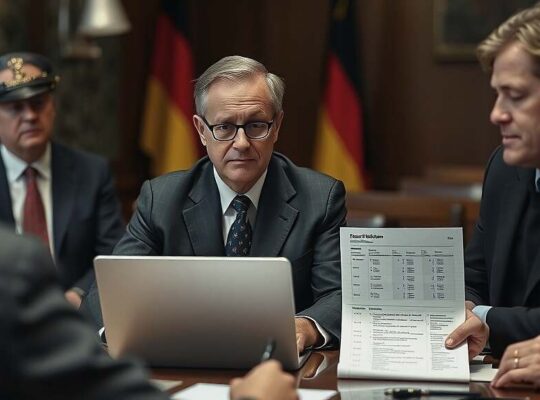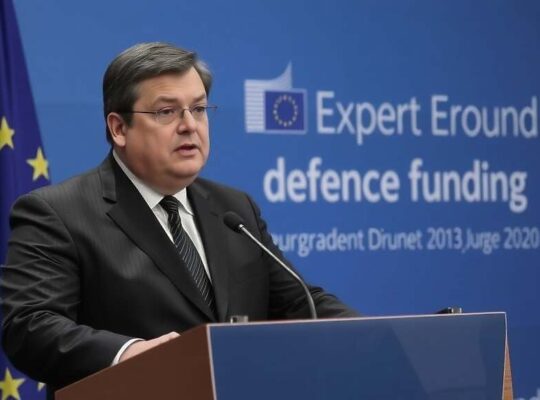German Government Eyes Significant Stake in Power Grid Operator Tennet
Berlin – The German government is preparing to inject substantial public funds into Tennet Deutschland, a major electricity grid operator, according to a draft budget proposal seen by “Handelsblatt”. The plan, slated for finalization next Thursday by the parliamentary budget committee, earmarks approximately €7.6 billion for potential participation in Tennet over the coming years, raising questions about the rationale and political implications of such a significant investment.
The funds, allocated within the budget of the Federal Ministry for Economic Affairs and Climate Action, will be channeled through the state-owned development bank, KfW. A preliminary €102 million is earmarked for expenditure in 2026, with the remaining €7.48 billion allocated as commitment authorizations for subsequent years. While the precise nature of a potential acquisition remains unclear, the draft explicitly mentions “expenditures related to the acquisition and holding of a stake in Tennet Deutschland through KfW.
This move follows recent announcements from the Dutch government, which initiated a partial sale of Tennet to a consortium comprising Norges Bank Investment Management (NBIM), APG and GIC – a Singaporean sovereign wealth fund. Speculation regarding a German government stake has circulated since that initial sale, which has now seemingly materialized into tangible budgetary preparations.
The scale of the proposed investment is already sparking debate among economists and political observers. Critics question the necessity of direct government intervention in a traditionally private sector activity, particularly given the ongoing need for fiscal prudence. Concerns are being raised about potential conflicts of interest and the impact on market dynamics, especially if the state becomes a dominant shareholder in a critical infrastructure provider.
Beyond the financial burden, the move raises broader questions about the government’s strategy for securing Germany’s energy transition. While proponents argue that state involvement can ensure stability and prioritize long-term infrastructural needs, opponents warn of potential inefficiencies and reduced flexibility.
Furthermore, the draft budget’s acknowledgement of funds allocated for “consulting services and experts” related to the potential acquisition hints at a potentially complex and extended process, raising the possibility of escalating advisory costs and further scrutiny of the government’s due diligence. The move underscores the increasing complexity of Germany’s energy landscape and the politically charged decisions surrounding its future.












